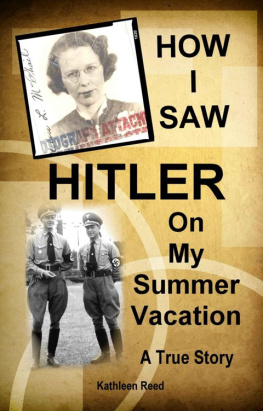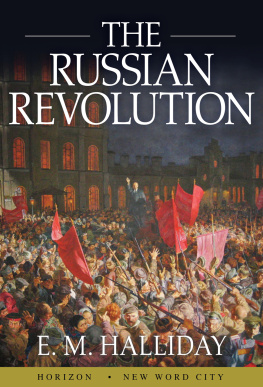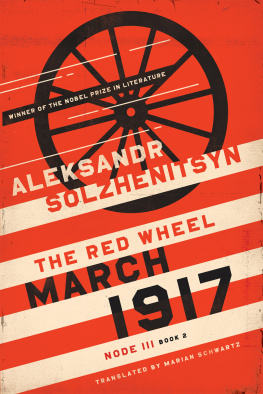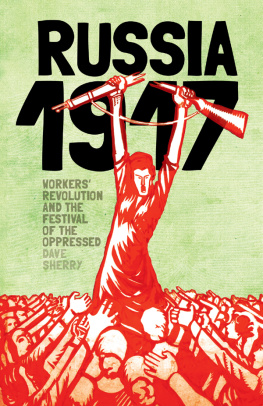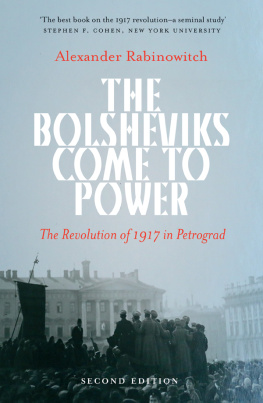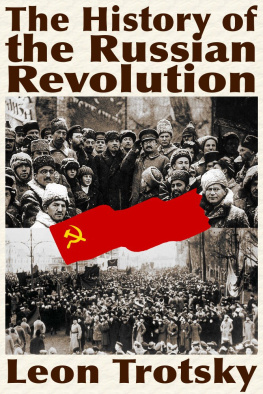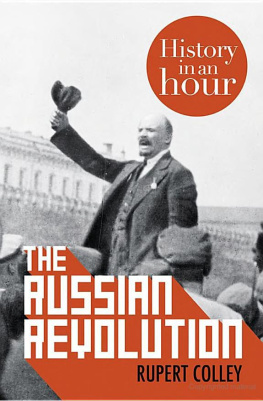John Reed was born in Portland, Oregon, in 1887. After college he entered journalism and soon became the most highly paid ace reporter in America. He was a correspondent in the Mexican War of 1916 to 1917 and a reporter in the First World War, a job which took him to Russia he was in Petrograd in 1917. He became personally involved in the Labour movement in the States in 1913 when he helped organize a silk-workers strike in Paterson, New Jersey; and when he returned from Russia he toured the country speaking on the October Revolution (of 1917) and reporting for the Liberator, a very left-wing journal. In 1919 he chaired the meeting which founded the Communist-Labour Party, later the Communist Party of the U.S.A.
John Reed then returned to Soviet Russia, where he died of typhus in 1920. He was buried in the Red Square, in the Heroes Grave; a plaque in the Kremlin wall commemorates him.
Ten Days That Shook the World
John Reed

Penguin Books
PENGUIN BOOKS
Published by the Penguin Group
Penguin Books Ltd, 80 Strand, London WC2R 0RL, England
Penguin Putnam Inc., 375 Hudson Street, New York, New York 10014, USA
Penguin Books Australia Ltd, 250 Camberwell Road, Camberwell, Victoria 3124, Australia
Penguin Books Canada Ltd, 10 Alcorn Avenue, Toronto, Ontario, Canada M4V 3B2
Penguin Books India (P) Ltd, 11 Community Centre, Panchsheel Park, New Delhi 110 017, India
Penguin Books (NZ) Ltd, Cnr Rosedale and Airborne Roads, Albany, Auckland, New Zealand
Penguin Books (South Africa) (Pty) Ltd, 24 Sturdee Avenue, Rosebank 2196, South Africa
Penguin Books Ltd, Registered Offices: 80 Strand, London WC2R 0RL, England
www.penguin.com
First published in the United States of America by Boni and Liveright, Inc, 1919
First published in England by
the Communist Party of Great Britain 1926
Published in Great Britain by Martin Lawrence 1932 and
reprinted by Lawrence & Wishart 1961
Published with a chronology in Penguin Books 1966
Reprinted with an introduction by A. J. P. Taylor 1977
2
Introduction copyright A. J. P. Taylor, 1977
All rights reserved
Except in the United States of America, this book is sold subject to the condition that it shall not, by way of trade or otherwise, be lent, re-sold, hired out, or otherwise circulated without the publishers prior consent in any form of binding or cover other than that in which it is published and without a similar condition including this condition being imposed on the subsequent purchaser
EISBN: 9781101488317
Contents
Introduction by A. J. P. Taylor
In 1964 Penguin Books decided to bring out John Reeds classic account of the Bolshevik revolution, Ten Days That Shook the World, and asked me to write an introduction. John Reeds widow had given the copyright of the book to the Communist Party of Great Britain. My introduction was submitted to Lawrence & Wishart, their publishers, and came back covered with objections. These were said to be questions of fact, though most of them seemed to me matters of opinion. However, I duly accepted the objections, either by modifying my statements or, where this would have led to plain error, deleting them. The revised introduction was again submitted. They replied that my introduction still had errors and that only a small part of it was acceptable to them an attitude which I had expected from the outset. Lawrence & Wishart proposed that someone else should write an acceptable introduction. Penguin Books preferred to publish the book without any introduction. The copyright has now expired and my introduction can at last be published. The reader is thus free to judge whether it is acceptable.
John Reeds book has long been a political classic. Its theme is the Bolshevik revolution of 7 November 1917 and, for once, a great theme found the narrator it deserved. George Kennan, the American diplomat and historian, has written: Reeds account of the events of that time rises above every other contemporary record for its literary power, its penetration, its command of detail. It will be remembered when all the others are forgotten. Reeds book is not only the best account of the Bolshevik revolution, it comes near to being the best account of any revolution. Revolutions are tumultuous affairs, difficult to follow while they are on. The participants are too busy to write down their experiences at the time, and the victors are too busy afterwards. Of the leading Bolsheviks only Trotsky wrote a detailed history of the revolution, and that many years afterwards when he was in exile. The defeated had time on their hands, and many of them wrote memoirs. Such memoirs are usually marked by the bewilderment and resentment that follows defeat. Sukhanov, the reluctant Menshevik, was one of the few who recaptured the spirit of the time.
Foreign observers stood outside the events even when they tried to be sympathetic, and few of them tried. No one would turn with enthusiasm to the accounts of the Bolshevik revolution as given by the British or French ambassadors. Some journalists did better, notably Philips Price of the Manchester Guardian. But even the best of these journalists were palpably writing about strange events in a strange country. John Reed occupied a different position. He was not himself engaged in the revolution and so had time to observe what was going on: time to collect newspapers and handbills; time to listen to street conversations; opportunity even to cross the lines and learn what was happening on the other side. But Reed, though not engaged physically in the Bolshevik revolution, was engaged morally. This was his revolution, not an obscure event in a foreign country. Reed was an American radical, educated at Harvard and now a passionate Socialist. He was in Russia as the representative of The Masses, then the principal radical and socialist journal in the United States. In his eyes the Bolshevik revolution was not merely a great upheaval in Russia. It was the beginning of the international revolution to which he, like the Bolsheviks, was pledged. Reed understood the Bolshevik outlook, understood why there should be a further revolution and wanted that revolution to succeed. He was too good a journalist to write propaganda, but he made no secret of where his sympathies lay. He had one further quality which completed the others. He was a great writer. To quote Kennan again, Reed was a poet of the first order. This book is evidence that he was a prose artist of the first order also.
Dazzled by Reeds achievement, we may fail to appreciate exactly what it was. This is not history written in detachment, with a large bibliography and a fuller understanding than men had at the time. The book is a contribution to history, not an analysis composed afterwards. It is first-hand evidence when Reed described what he saw and experienced. But much of it is not first-hand. Often Reed sat in the quiet of his hotel room, cigarette in mouth, tapping out on his typewriter copy for The Masses. He would piece together fragments of conversations, add imaginative detail of what was likely to have happened and crown all with a brilliant phrase.
For instance Reed often says that Smolny, which housed the Petrograd Soviet, was humming with activity, lights blazing all night, messengers and Red Guards crowding its corridors. Smolny appears as a sort of beehive and with little detail of what the bees were up to. Reed did not in fact know. He was a foreign journalist, though a sympathetic one, and the Bolsheviks revealed to him few of their secrets. Again Reed, like any good reporter, gives the impression of an unflagging excitement. In reality nothing was happening for much of the time, and Reed himself was occupied only in talking with other American journalists. Indeed the Bolsheviks themselves were worried that the revolutionary impulse was dying away. This was a powerful factor in pushing them into action before it was too late.



